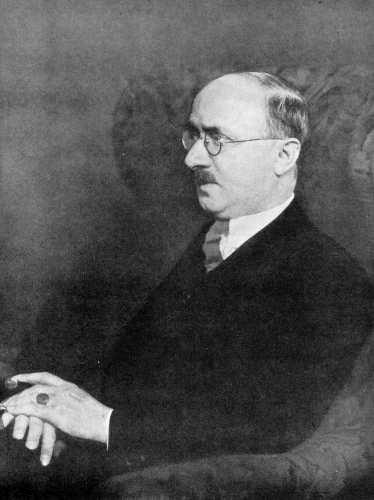
Max EITINGON (26.06.1881, Poland, Russian Empire — 30.07.1943, Jerusalem) — Russian psychoanalyst, one of the first and most faithful of Freud's disciples and promoter of psychoanalysis, founder of psychoanalytic societies in different countries and organizer of analytic education.Max Eitingon was born into a rich Jewish family. Although, he changed citizenship several times (Russian, Austrian and Palestinian), all his life he kept Russian as his first language. He spoke three languages fluently, but because of his stammer, an affliction from which he suffered throughout life, he left school before graduation. But this did not hinder from his education and academic career. He began a traditional medical career in 1903 when he entered the University of Marburg (Germany), completing the greater part of these at Zurich (Switzerland) where in 1909 he acquired the degree of M.D. Then he moved to Burgholzli (Switzerland), where he met K. Abraham and C.G. Jung and became familiar with psychoanalysis. On 28 January 1907 he met Sigmund Freud and became a member of the Vienna Psychoanalytic Society; shortly after he began his personal analysis with Freud. After that he moved to Berlin (Germany), where with Abraham he founded and developed the Berlin Psychoanalytic society, Berlin Psychoanalytic Institute and Press. After Abraham's death in 1925 he became the President of the International Psychoanalytic Association; he remains the first and the sole Russian president of the IPA. Because of his Zionist ideas, in 1933 when Nazis came to power in Germany he was forced to move to Jerusalem, where — as an excellent promoter — he founded the Palestinian society and analytic library. His talent as organizer was also recognized by the Soviet intellectual services, with which Max Eitingon collaborated from 1938.
He also earns historical recognition for his theoretical achievements. In 1922 Max Eitingon proposed a new system of psychoanalytic education, which even today remains the classical tripod of psychoanalytic training in all schools and branches: training analysis, clinical supervision, and seminars. He also proposed that candidates not begin their analytic practice until they had finished their training analysis. That idea was accepted by the IPA and remains active with some modifications, proposed by Otto Kernberg, although today many other analytical schools refuse to follow that rule. Because it is difficult to separate training analysis and clinical supervision, Eitingon proposed the study of transference bonds both in training analysis and clinical supervision. His works on transference in supervision remains basic and after 80 years.
-=-
By Eitingon:
Eitingon M. Report of the International Training Commission. International Journal of Psycho-Analysis. No. 7, 1922. P. 130–134
Eitingon M. Report of the Berlin Psychoanalytical Polyclinic. International Journal of Psycho-Analysis. No. 4, 1923. P. 27–37
On Eitingon:
Arlow J.A. Myth and Ritual in Psychoanalytic Training. In Training Analysis, ed. by Charlotte Babcock. Pittsburgh: Pittsburgh Psychoanalytical Institute, 1969. P. 104–120
Arlow J.A. Some Dilemmas in Psychoanalytic Education. In Journal of the American Psychoanalytic Association. No. 20, 1972. P. 556–566
Blitzten M., Fleming J. What is Supervisory Analysis? In Bulletin of the Menninger Clinic. No. 17, 1953. P. 117–129
Grinberg L. La Supervision Psicoanalitica. Buenos Aires: Editorial Paidos, 1965
Grotjahn M. Problems and Technique of Supervision. In Psychiatry, No. 18. P. 9–15
Keiser S. The Technique of Supervised Analysis. In Journal of the American Psychoanalytic Association. No. 4, 1956. P. 539–549
Kernberg O. Concerned Critique of Psychoanalytical Education. International Journal of Psycho-Analysis. No. 1 (81), 2000. P. 97–120
Kernberg O. Contemporary Controversies in Psychoanalytic Theory, Techniques, and their Applications. New Haven and London: Yale University Press, 2004. P. 105–137
Kernberg O. Institutional Problems of Psychoanalytic Education. Journal of the American Psychoanalytic Association. No. 34, 1986. P. 799–834
Lander R. Experiencia Subjetiva y logica del otro Caracas: Editorial Psicoanalitica, 2004. P. 408–415
Lander R. Grafo de la Transferencia. Caracas: SPC, 1997
-=-
Dmitry Olshansky, psychoanalyst (St Petersburg)
E-mail: Olshansky@hotmail.com
